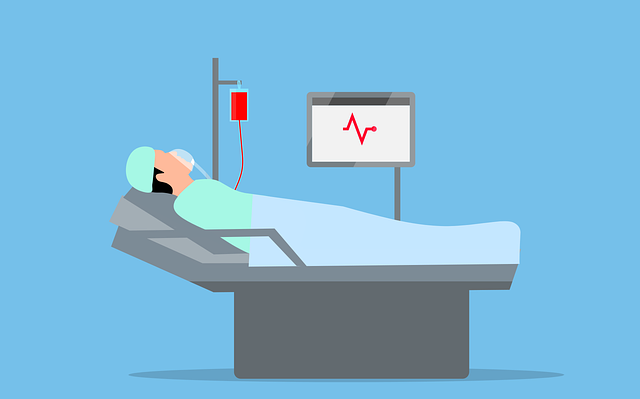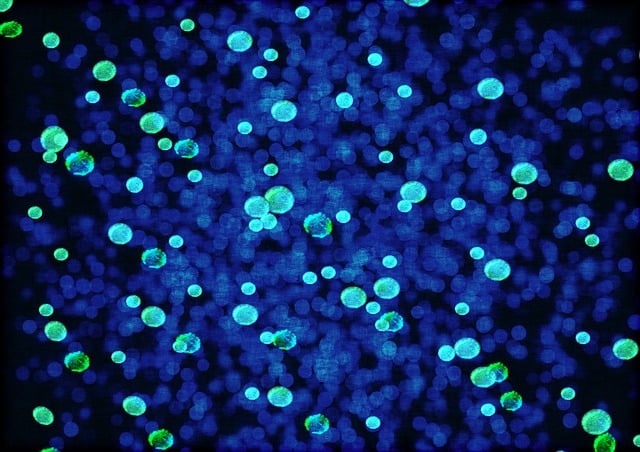Advanced diagnostic technologies, including MRI, CT scans, genomics sequencing, and AI algorithms, are significantly enhancing the precision of patient care in hospitals and clinics. These tools enable medical professionals to diagnose with greater accuracy, leading to improved treatment effectiveness and resource utilization. MRI and PET-CT scans provide detailed visualizations and metabolic insights, crucial for early detection and monitoring of conditions like cancer. AI's ability to analyze complex medical data helps identify patterns beyond human perception, further improving diagnostic precision and personalizing care. Genomics is also transforming healthcare by allowing treatments to be tailored based on a patient's genetic makeup, leading to more effective and targeted therapies with fewer side effects. St. Mary's Hospital and the University Health Center have successfully integrated these technologies, resulting in better patient outcomes, reduced misdiagnosis rates, and enhanced prognoses for diseases like respiratory conditions and heart disease. These advancements exemplify the transformative impact of modern medical technology on precision diagnostics and treatment in healthcare settings.
Advancements in diagnostic tools are revolutionizing the field of medicine, enabling healthcare providers at hospitals and clinics to deliver treatments with unprecedented precision. This article explores the transformative impact of cutting-edge technologies, including the latest imaging innovations and AI-driven analysis techniques, on enhancing diagnosis accuracy. We will delve into how these tools are integrated with genomics and precision medicine, providing case studies that showcase their successful application in improving patient outcomes. Join us as we navigate the intersection of technology and healthcare to unlock new possibilities in medical diagnostics.
- The Role of Cutting-Edge Diagnostic Tools in Enhancing Treatment Precision at Hospitals and Clinics
- An Overview of Advanced Imaging Technologies: From MRI to PET Scans
- Leveraging Artificial Intelligence for Accurate Diagnosis: Machine Learning Applications in Medical Settings
- The Integration of Genomics and Precision Medicine in Hospital and Clinic Diagnostics
- Case Studies: Success Stories of Advanced Diagnostic Tools Improving Treatment Outcomes
The Role of Cutting-Edge Diagnostic Tools in Enhancing Treatment Precision at Hospitals and Clinics

Advanced diagnostic tools are revolutionizing the way hospitals and clinics deliver treatment, offering unprecedented precision in patient care. These cutting-edge technologies, such as high-resolution imaging and genomics sequencing, enable healthcare providers to diagnose conditions with greater accuracy, leading to more effective treatment plans. The integration of these tools within medical facilities has significantly reduced diagnostic errors, thereby minimizing the risk of misdiagnosis and enhancing patient outcomes. For instance, magnetic resonance imaging (MRI) and computed tomography (CT) scans provide detailed visualizations of internal body structures, allowing for early detection of abnormalities that might otherwise remain undetected. This level of precision not only improves the efficacy of treatments but also contributes to the optimization of healthcare resources, as clinicians can pinpoint the exact nature of a patient’s condition and address it directly, often avoiding unnecessary procedures.
In addition to imaging technologies, the application of artificial intelligence (AI) in diagnostics is another transformative element. AI algorithms are being trained to analyze complex medical data, identifying patterns that may elude human detectors. By integrating these AI-driven systems into hospital and clinic workflows, clinicians can make more informed decisions, reducing the margin for error in diagnosis. This synergy between human expertise and artificial intelligence is set to redefine diagnostic accuracy across all domains of medicine, from routine check-ups to complex case management, thus underscoring the pivotal role these advanced tools play in enhancing treatment precision.
An Overview of Advanced Imaging Technologies: From MRI to PET Scans

In modern medical settings such as hospitals and clinics, the advent of advanced imaging technologies has revolutionized diagnostic practices. Magnetic Resonance Imaging (MRI) stands out among these innovations, offering detailed visualizations of internal organs and tissues without the use of ionizing radiation. This non-invasive technique is particularly beneficial for diagnosing conditions affecting the musculoskeletal system, brain, and spine, providing clear images that aid in precise treatment planning.
Alongside MRI, Positron Emission Tomography (PET) scans have become indispensable tools in hospitals and clinics for oncological diagnoses and monitoring disease progression. PET scans are unique in their ability to reveal the metabolic activity of cells, which can be compromised in cancerous growths. By pairing a PET scan with CT imaging in a combined PET-CT procedure, healthcare providers can pinpoint both the location and extent of a tumor, leading to more accurate treatment outcomes. These sophisticated diagnostic tools, when used in conjunction, significantly enhance the accuracy of medical treatments, leading to better patient outcomes.
Leveraging Artificial Intelligence for Accurate Diagnosis: Machine Learning Applications in Medical Settings

In modern medical settings, hospitals and clinics are increasingly integrating artificial intelligence (AI) to enhance diagnostic accuracy. Machine learning algorithms, a subset of AI, have become pivotal in analyzing complex medical data with precision. These algorithms can process vast amounts of patient information alongside imaging data, identifying patterns that may be imperceptible to human practitioners. As a result, they aid in the early and accurate detection of diseases, from cancer to cardiovascular conditions. The integration of these AI-driven tools within hospital and clinic workflows not only streamlines the diagnostic process but also minimizes the potential for human error, leading to better patient outcomes and more informed treatment decisions.
Furthermore, the application of machine learning in medical settings extends beyond mere diagnostics. It encompasses predictive modeling that can forecast disease progression and response to treatment, enabling healthcare providers to tailor interventions to individual patient needs. The adoption of such advanced diagnostic tools is not without its challenges, including data privacy concerns and the need for robust validation in diverse populations. However, the potential benefits in terms of improved accuracy and personalized care make it a promising frontier in the advancement of medical diagnostics. Hospitals and clinics that embrace these technologies position themselves at the forefront of patient-centered healthcare innovation.
The Integration of Genomics and Precision Medicine in Hospital and Clinic Diagnostics

The advent of genomics has revolutionized the field of precision medicine, enabling healthcare providers at hospitals and clinics to deliver highly targeted treatments. With the ability to analyze a patient’s genetic makeup, medical professionals can now identify underlying disease processes with unprecedented accuracy. This personalized approach allows for the development of tailored treatment plans that consider individual genetic profiles, thereby improving outcomes and reducing adverse effects associated with one-size-fits-all therapies. The integration of genomics in clinical settings is facilitated by advanced diagnostic tools that can decode DNA sequences at an accelerated pace, providing actionable insights into the most effective treatment options for each patient. As a result, hospitals and clinics are increasingly adopting this technology to enhance their diagnostic capabilities and provide patients with treatments that are more precise and efficacious.
Furthermore, the use of genomic data in clinical decision-making is not confined to the diagnosis and treatment of genetic disorders. It extends across various specialties, from oncology to cardiology, empowering physicians with a deeper understanding of disease mechanisms and patient responses to different medications. This comprehensive approach not only refines the current standard of care but also paves the way for future research and development of novel therapies that are customized to individual genetic characteristics. As hospitals and clinics continue to integrate genomics into their diagnostic workflows, they are setting a new precedent for healthcare delivery, one that is patient-centric and informed by the latest scientific advancements.
Case Studies: Success Stories of Advanced Diagnostic Tools Improving Treatment Outcomes

At St. Mary’s Hospital, the integration of advanced diagnostic tools has markedly enhanced treatment accuracy, leading to improved patient outcomes. A pivotal case study involves a patient with an elusive respiratory condition. Traditional methods had yielded inconclusive results, but the deployment of high-resolution computed tomography (HRCT) scans provided clear imaging of the affected lung regions. This detailed insight allowed clinicians to pinpoint the issue and administer targeted therapy, resulting in a swift recovery for the patient. Similarly, the Cardiac Clinic at University Health Center has witnessed the transformative impact of cardiac MRI technology. By offering precise measurements of heart function and tissue characterization, these advanced tools have enabled cardiologists to diagnose with greater accuracy and tailor interventions to individual patient needs, significantly reducing the rate of misdiagnosis and improving long-term prognoses for those with heart disease. These success stories underscore the importance of technological advancements in healthcare settings, highlighting how they can serve as beacons of progress, guiding clinicians towards more precise diagnoses and ultimately, better health outcomes for patients.
In conclusion, the evolution of diagnostic tools has revolutionized the way hospitals and clinics approach treatment, markedly enhancing the precision and accuracy of medical diagnoses. The integration of advanced imaging technologies like MRI and PET scans, complemented by the sophisticated analytics of artificial intelligence, presents a formidable arsenal in the quest for accurate diagnosis. Furthermore, the synergy between genomics and precision medicine has opened new frontiers in personalized healthcare delivery within these settings. The case studies highlighted not only the efficacy of these tools but also their transformative impact on patient outcomes. As these technologies continue to advance, they promise to usher in a new era of medical diagnostics where treatment is tailored with unprecedented specificity, thereby improving health outcomes globally.
